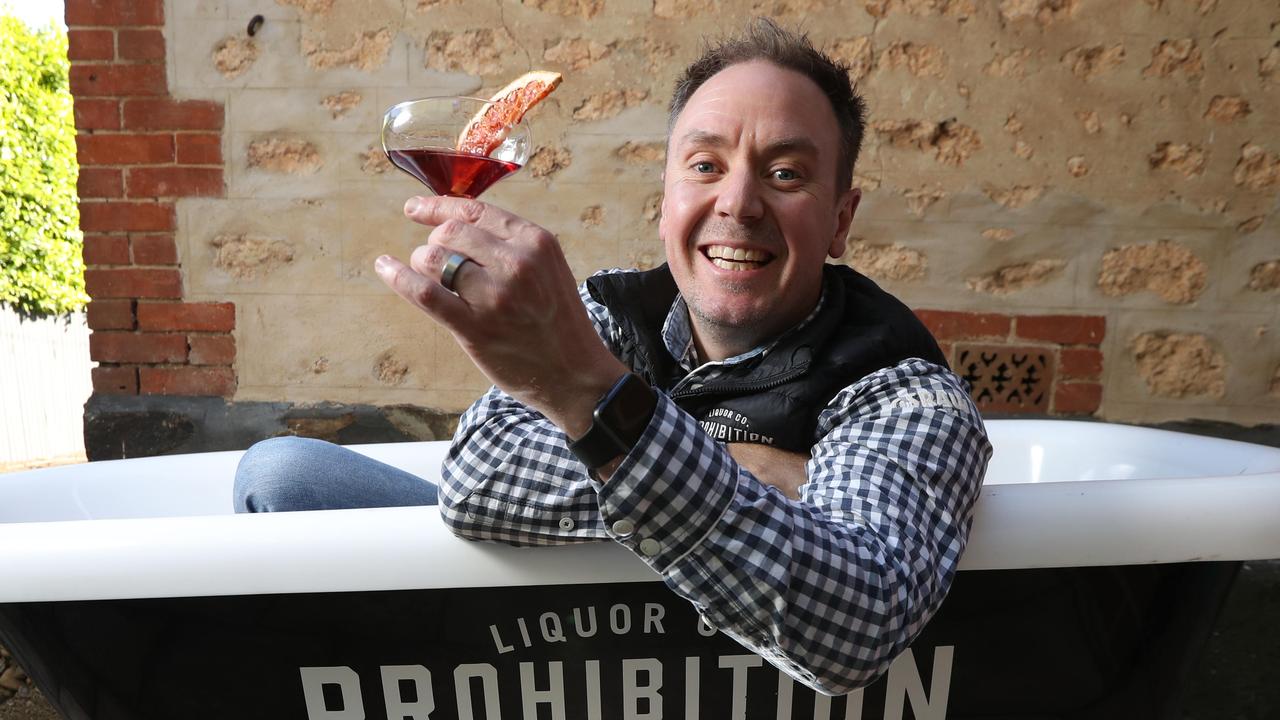‘I’ll kill you’: Violent attack that finally ended 40-year marriage
After 40 years in an abusive marriage, an Adelaide woman finally worked up the courage to leave. As the SA domestic violence royal commission holds its first hearings, read her powerful message.
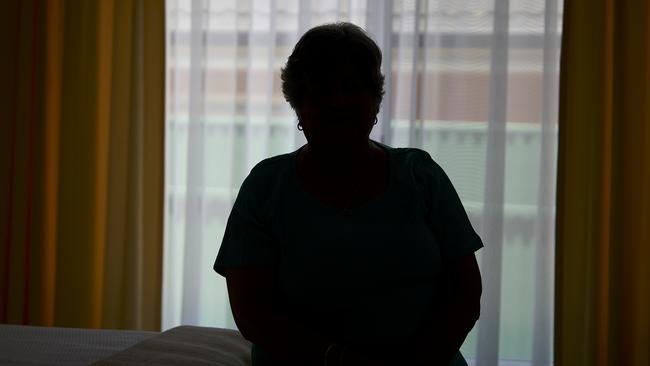
SA News
Don't miss out on the headlines from SA News. Followed categories will be added to My News.
After nearly 40 years, Gilly’s abusive marriage finally came to an end in one horrifyingly violent assault.
Her husband, a former Defence force personnel, flew at her in a rage, threatening to kill his wife, then 64, and bashing her with a metal walking stick.
He flung her against a wall, smashing a tooth, before pinning her on the ground, throttling her around the neck with his hands and sexually violating her with the walking stick.
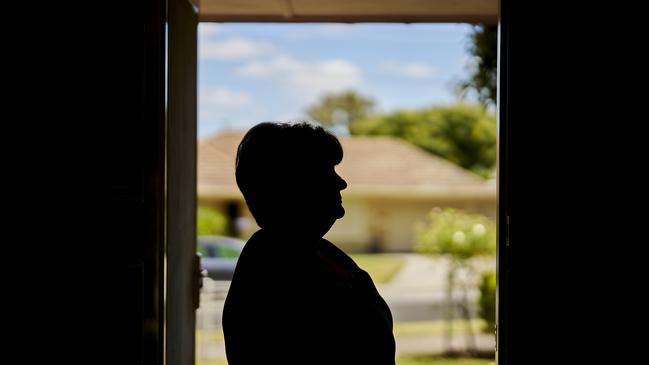
“He said ‘I want to kill you’. It was terrifying, I thought my day on Earth had come,” says the now-73-year-old former nurse, who managed to break free from his strangling grasp and crawl to the safety of her bedroom, where she locked the door and called police.
“After all those years of abuse, of anger and violence, of being ridiculed, of being gaslit … it took what happened that day to finally make me leave.
Nine years later, Gilly – not her real name – is speaking about how she found the courage to leave her long and abusive marriage as the state government and Council of the Ageing launch a new public awareness campaign targeting older women who are struggling to leave their violent husbands.
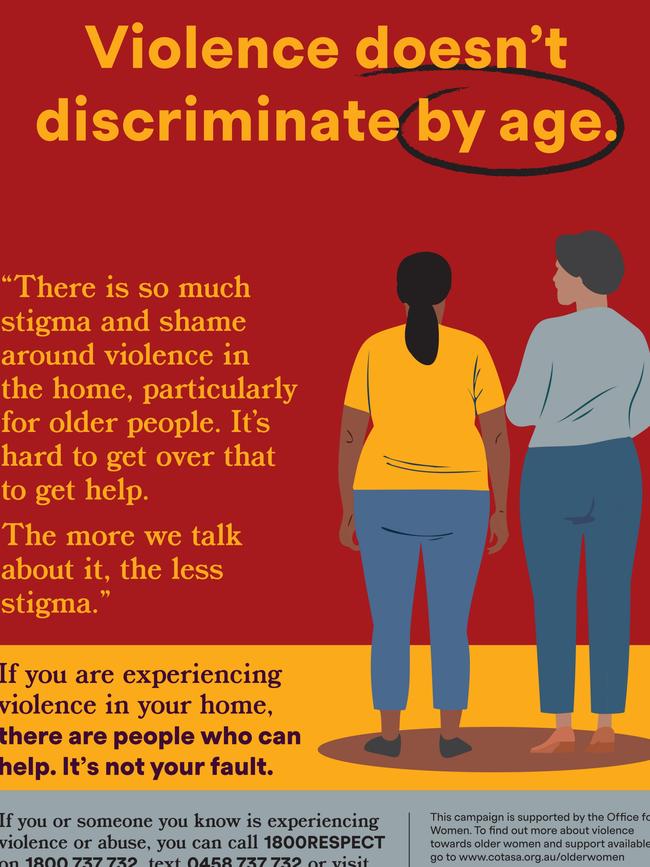
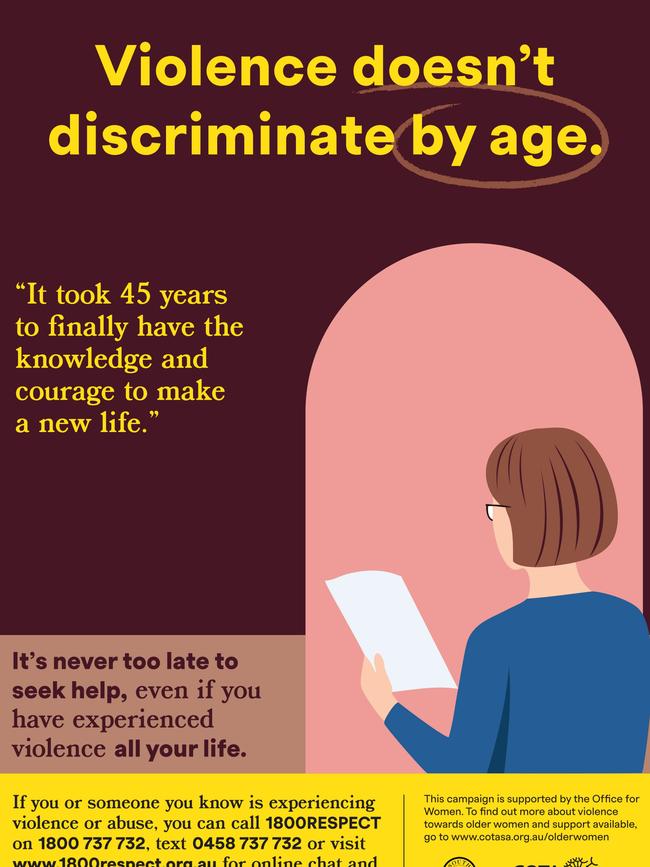
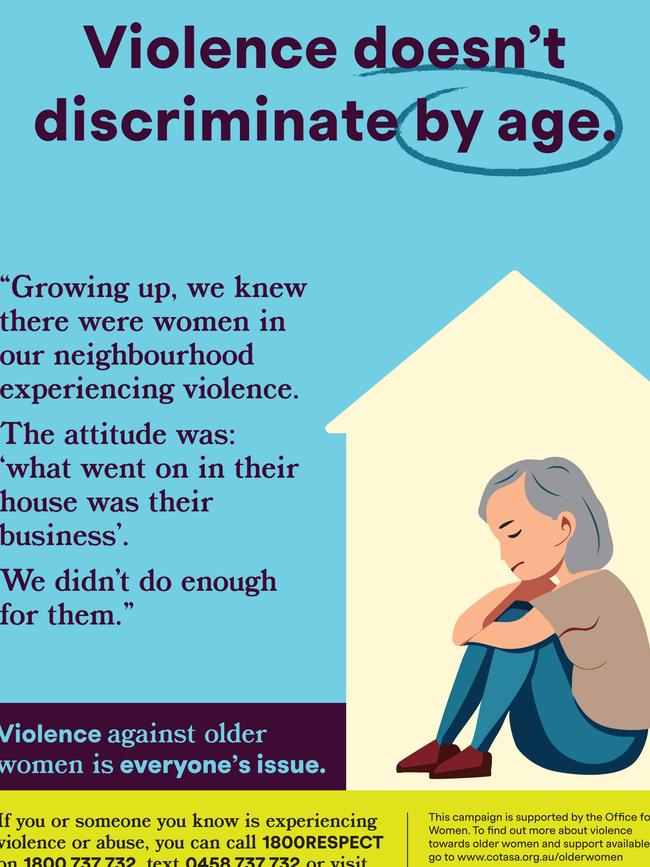
The campaign is based on a study that surveyed more than 400 South Australian women aged 50 and over.
The research found feelings of shame and guilt were barriers to seeking help and support for older women experiencing domestic violence.
Other factors included, financial disadvantage, generational issues that resulted in the view “what happens in the family stays in the family”, and rural and remote locations or diverse backgrounds that made it hard to access services and support.
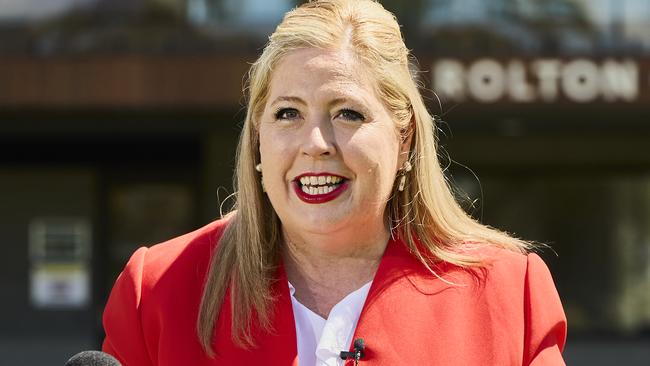
“Sadly, we know that violence perpetrated against older women has often spanned
their lifetime, and there is burden of shame and conditioning that can prevent them
from speaking out and finding support,” Katrine Hildyard, Minister for Women and the Prevention of Domestic, Family and Sexual Violence said.
“This crucial research has identified gaps in service provision and helped to raise
awareness that older women do not have to suffer in silence, that help is out there.”
Gilly has not seen her ex-husband since he was taken from her northeastern suburbs home by police 10 years ago.
He pleaded guilty to aggravated common assault by use of an offensive weapon and was sentenced to a $100 nine-month good behaviour bond. She still lives with back and neck injuries suffered during the attack.
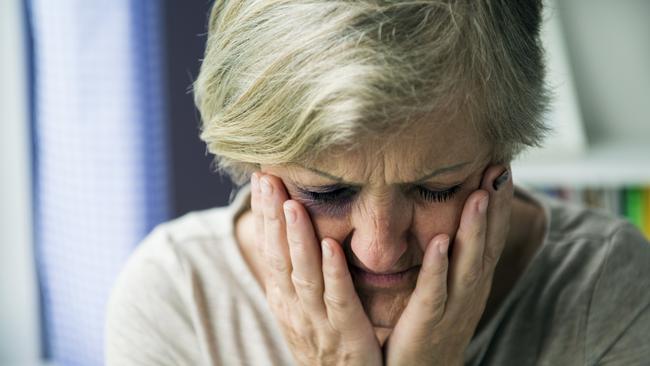
Ten years later, Gilly – who suffered her first assault just a year after she was married – is urging older women to have the courage to leave abusive marriages.
“I always felt monumental shame and embarrassment that it had happened. I was told not to speak out because it would hurt my husband’s career. I was asked ‘what did you do to make him angry’,” said Gilly, whose two adult children have no contact with their father.
“I want women that are my age who are still in domestic violence situations to know there is a better life free of the abuse.
“The person who you are can grow and find peace and happiness and find your self-worth. You absolutely can start a new life.
“Don’t be afraid. I’m out there living my richest, happiest life, I’m peaceful and I’m happy.”
Rental crisis sending women back to abusers
Women are returning to abusive partners because they cannot find affordable rental properties and keeping quiet about violence because they fear authorities will take their children, a royal commission has heard.
Calls for help to a statewide crisis line are also surging but about a third are going unanswered because of funding shortfalls.
Royal commissioner Natasha Stott Despoja has held the first public hearings as part of a year-long inquiry into domestic, family and sexual violence in South Australia.
Since launching in July the royal commission has received 350 submissions and 550 responses to an online survey.
Leaders of frontline services on Wednesday told the inquiry about cases of women and children are being left at risk, including a mother and two children who had to spend six months in a motel after fleeing a violent home.
She eventually decided to return to her abusive partner because she lost hope of finding an affordable rental property on her own.
Other cases included:
- Growing numbers of young Aboriginal mothers with babies seeking crisis housing.
- A 16-year-old girl rough sleeping in Adelaide’s southern suburbs.
- Couch surfing teens who had “exhausted” all their options for safe places to stay.
- Women choosing between living in their car or returning to an abuser.
- Women being given motel accommodation during the week but being asked to leave on the weekend.
Women’s Safety Services SA chief executive officer Maria Hagias said the Domestic Violence Crisis Line fielded about 35,000 calls in 12 months but staff could not answer about 30 per cent, or about 10,500 calls, because of a lack of funding.
“The demand is significant, the system isn’t coping and it’s at crisis point,” she said.
“It takes a lot of courage for people to call in and when you can’t pick up the phone ... there are extreme frustrations.
“That puts significant stress on our frontline staff who do this work because ... when you can’t reach every person that calls it is extremely distressing.”
In a report on the first five months of the royal commission Ms Stott Despoja wrote that mothers fear “that their children may be removed if they disclose they are experiencing violence”.
“The commission has been told that the child protection system can hold women who are
experiencing violence more accountable for their children’s safety than the men responsible for using violence,” she wrote.
- Lauren Novak, Social Policy Editor
More Coverage
Originally published as ‘I’ll kill you’: Violent attack that finally ended 40-year marriage




